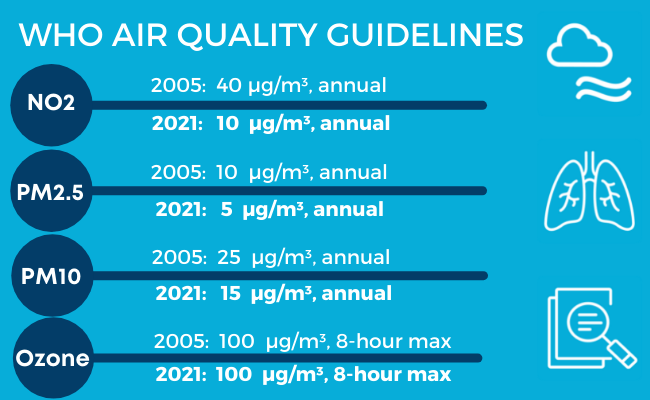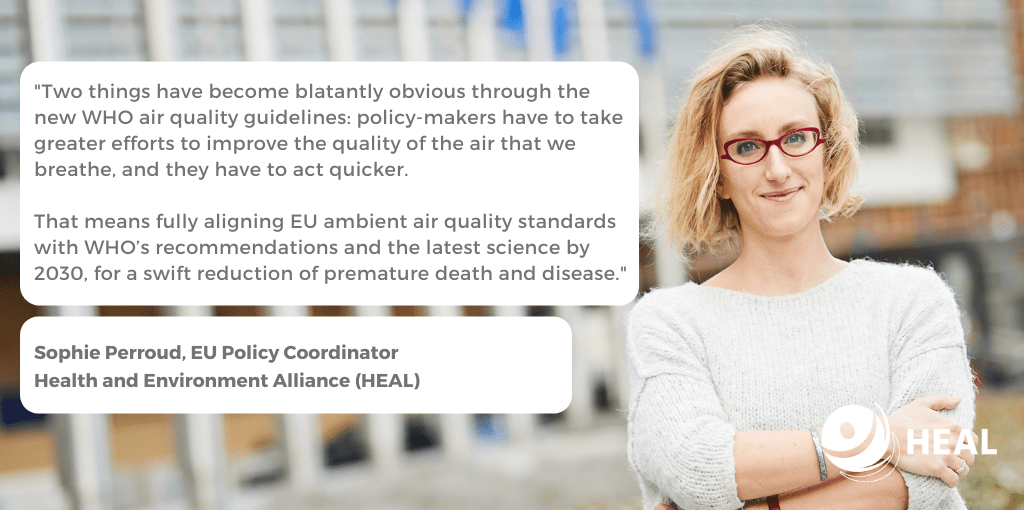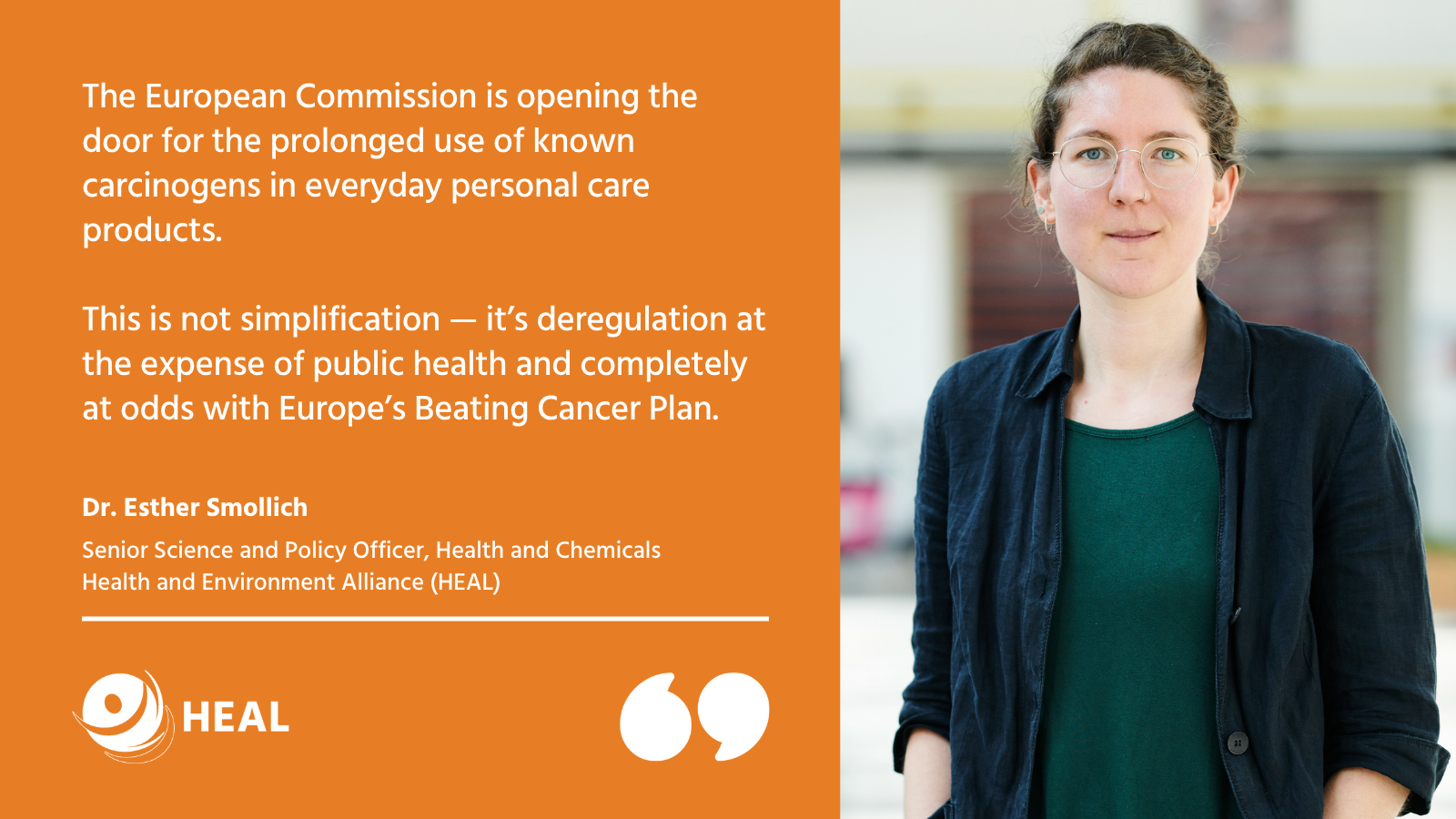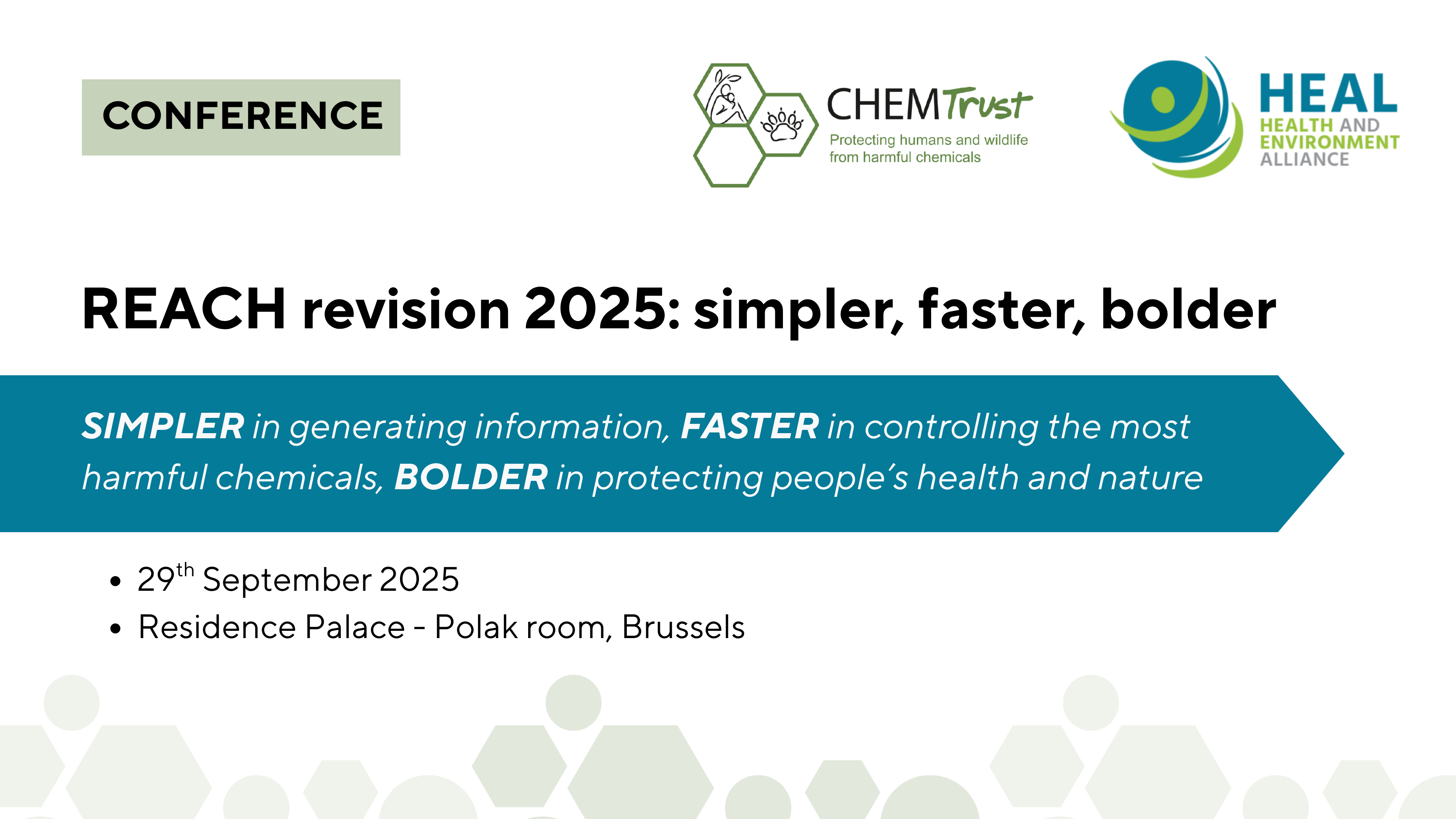Today’s publication of the European Commission’s chemicals omnibus confirms serious concerns: if pushed through the proposal will significantly weaken protections in the Cosmetic Products Regulation, allowing the prolonged use of carcinogens and other harmful chemicals in personal care products.
Air pollution is the largest environmental threat to health in Europe. Following new WHO recommendations, health groups urge EU and national decision-makers to fully take into account the new science on health harm in the update of clean air standards. The next months will provide many opportunities for health experts and advocates to have their say in the revision of the EU law.
In September 2021, the World Health Organization (WHO) published much awaited new evidence-based Global Air Quality guidelines, the first update since 2005.
After a systematic review of the accumulated evidence, the WHO recommends lower values for several pollutants, most notably for particulate matter PM2.5, which causes the greatest health burden, for which a new annual concentration of 5 µg/m³ is now recommended (the current EU’s annual standard is 25µg/m³); for nitrogen dioxide (NO2), which has come under intense scrutiny in discussions on road transport and inner-city driving bans, a new annual concentration of 10 µg/m³ is now recommended (from previously 40 µg/m³).

With the new science-based recommendations now available, health groups have urged the European Union and national decision-makers to protect the health of hundreds of millions by stepping up efforts for clean air for health, by first and foremost by fully aligning EU air quality standards with the science based guidelines and other new studies – a step that thousands of citizens have been calling for in a petition.
Given that air pollution is such a major determinant of our health, the role of health ministers and ministries is key.
With an open letter to EU-27 national ministers of health, HEAL invited the leading health bodies to be more involved in clean air efforts and to express their support for WHO aligned air quality standards. The letter was accompanied by a Q&A on air pollution and the benefits of clean air policies. The letter is available in Bulgarian, Italian, Spanish, Portuguese, Polish, Slovenian and Dutch.
Our concern was echoed by members and partners in Bulgaria, Italy, Spain, Portugal, Poland, and Slovenia who also contacted their national health minister, with activities in Belgium, Germany, and France in the pipeline.
Continued health engagement is crucial
The legislative proposal for the revision of the EU’s ambient air quality directive is scheduled for the 3rd quarter of 2022. It will be based on an impact assessment and stakeholder consultations.
As a first step in seeking input, the European Commission has launched a public consultation, which is open until 16 December 2021.
This is a not to be missed opportunity for organisations and individuals to voice support for stricter clean air standards. HEAL will take part in this process on the basis of 10 demands for the EU’s Clean Air for Health Transition 2021-2030.




